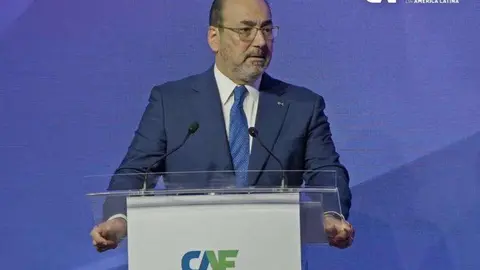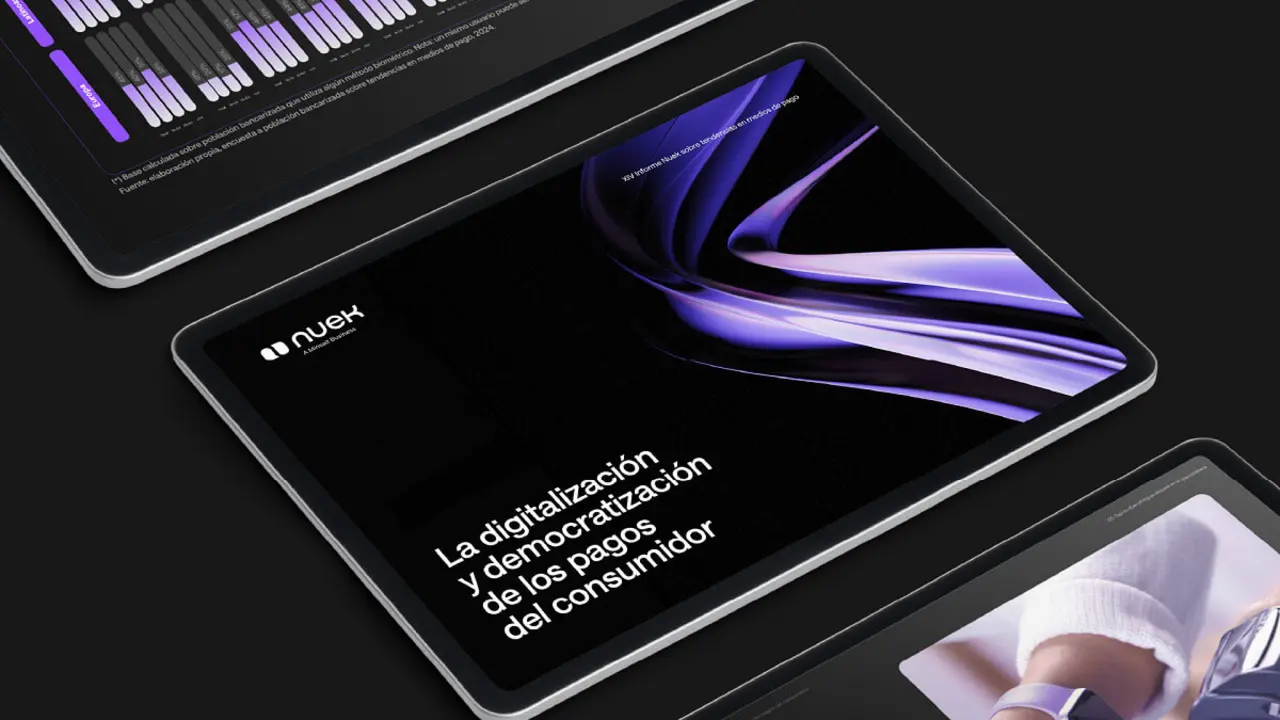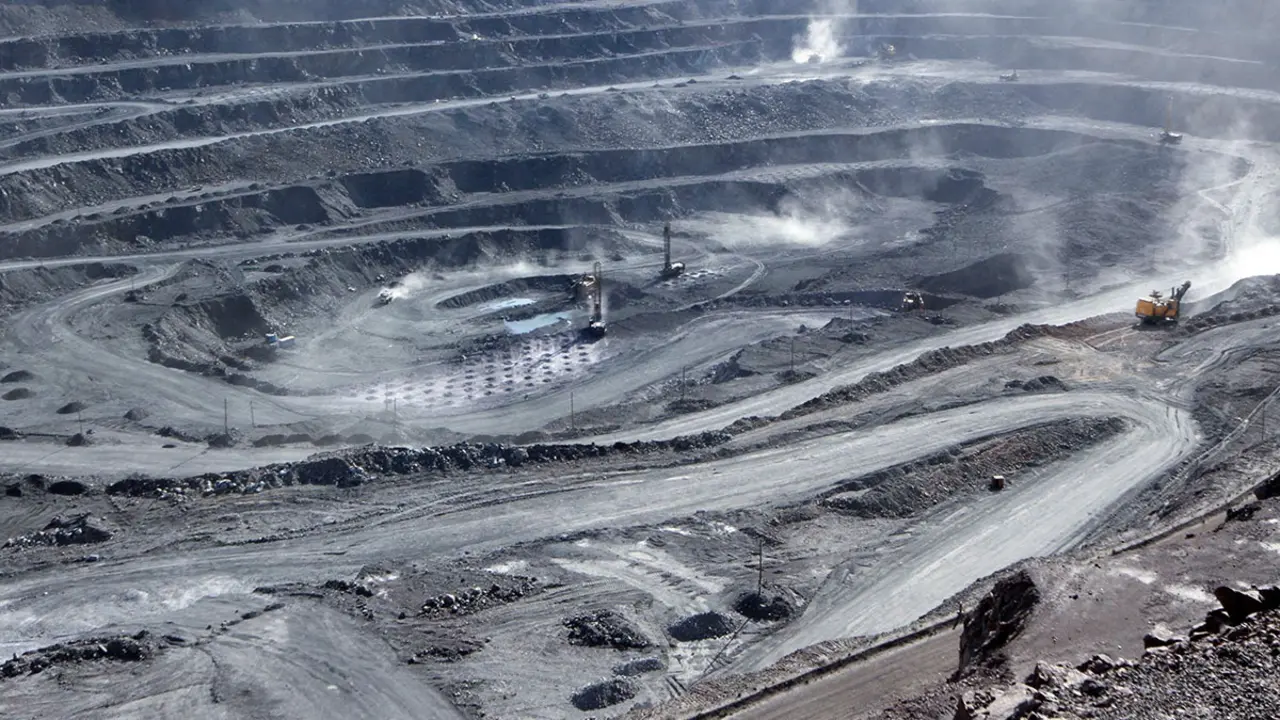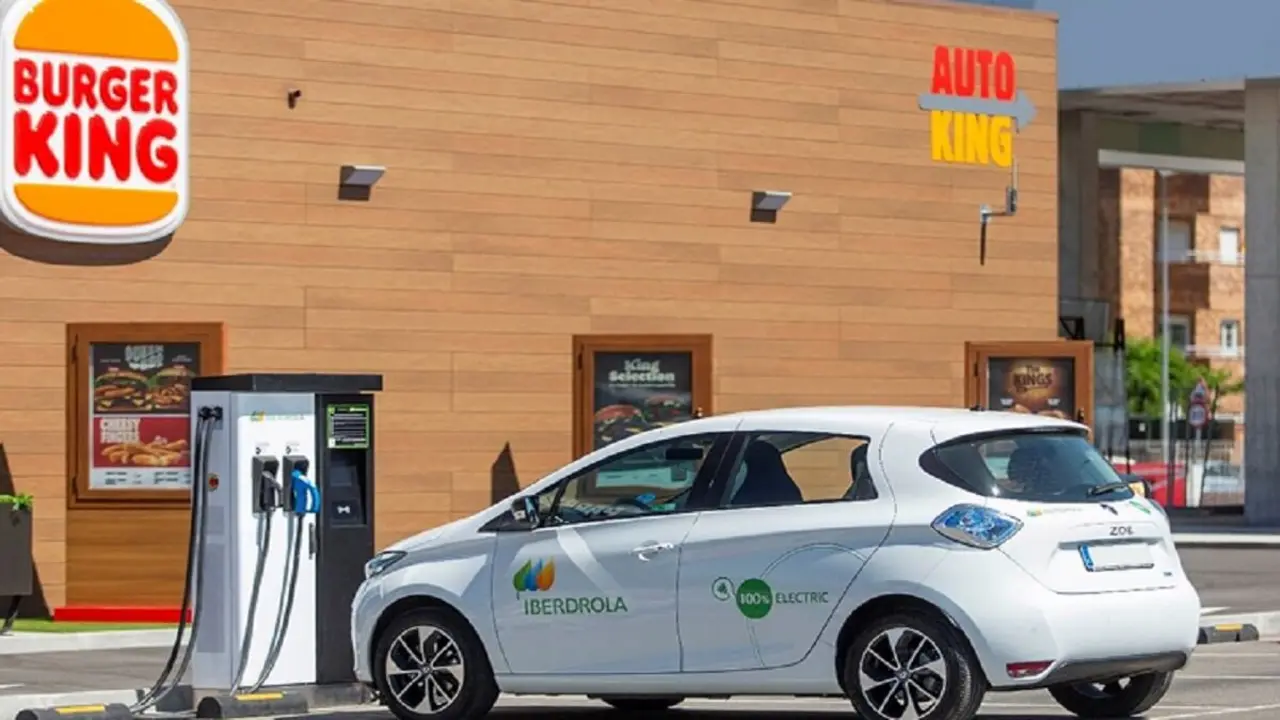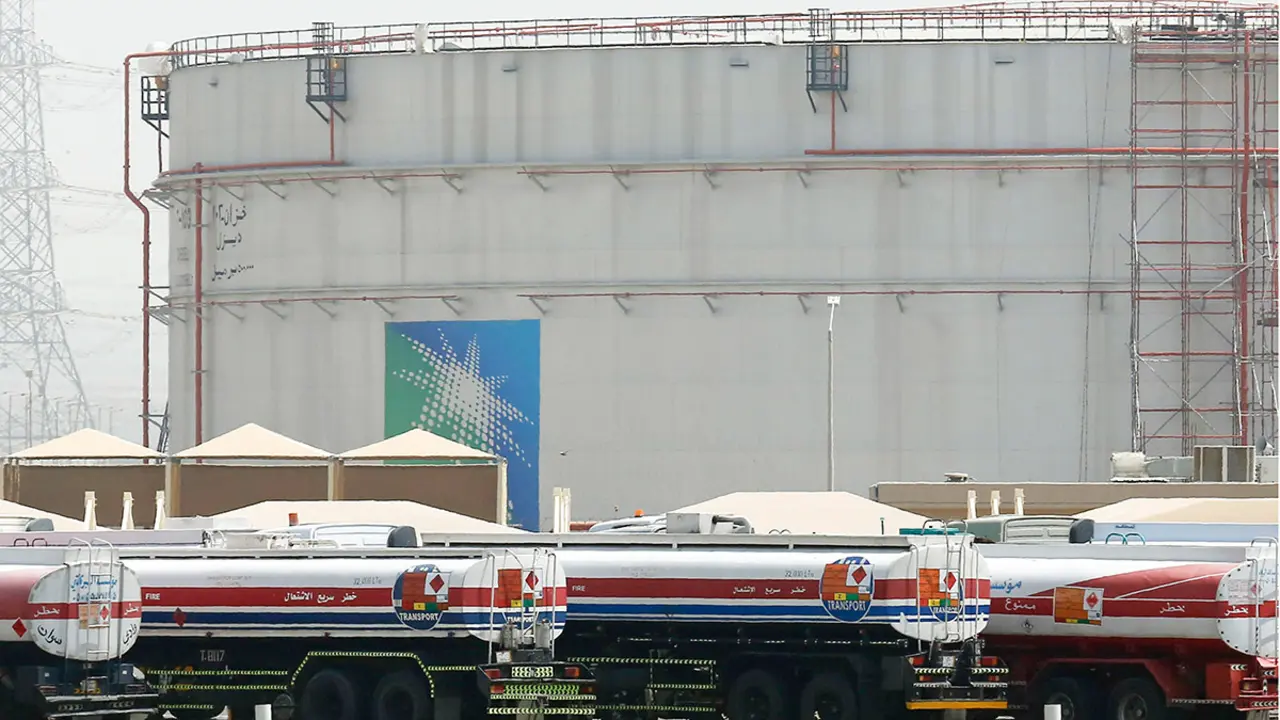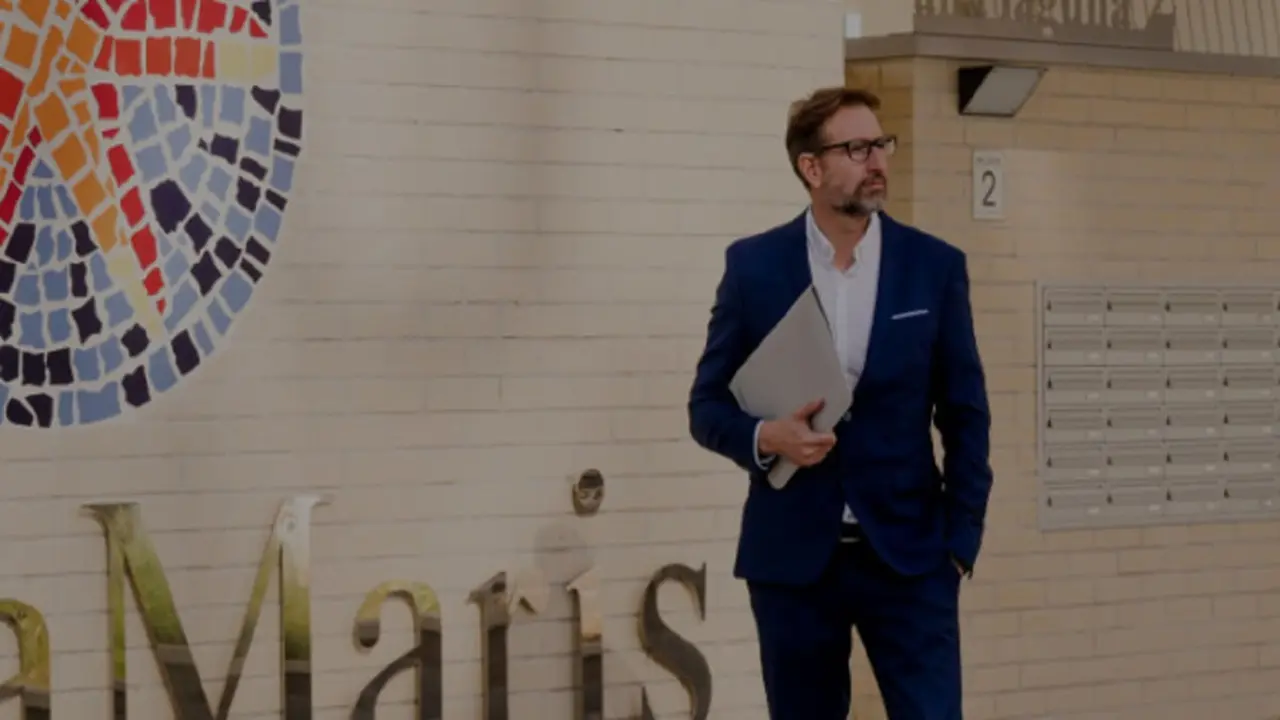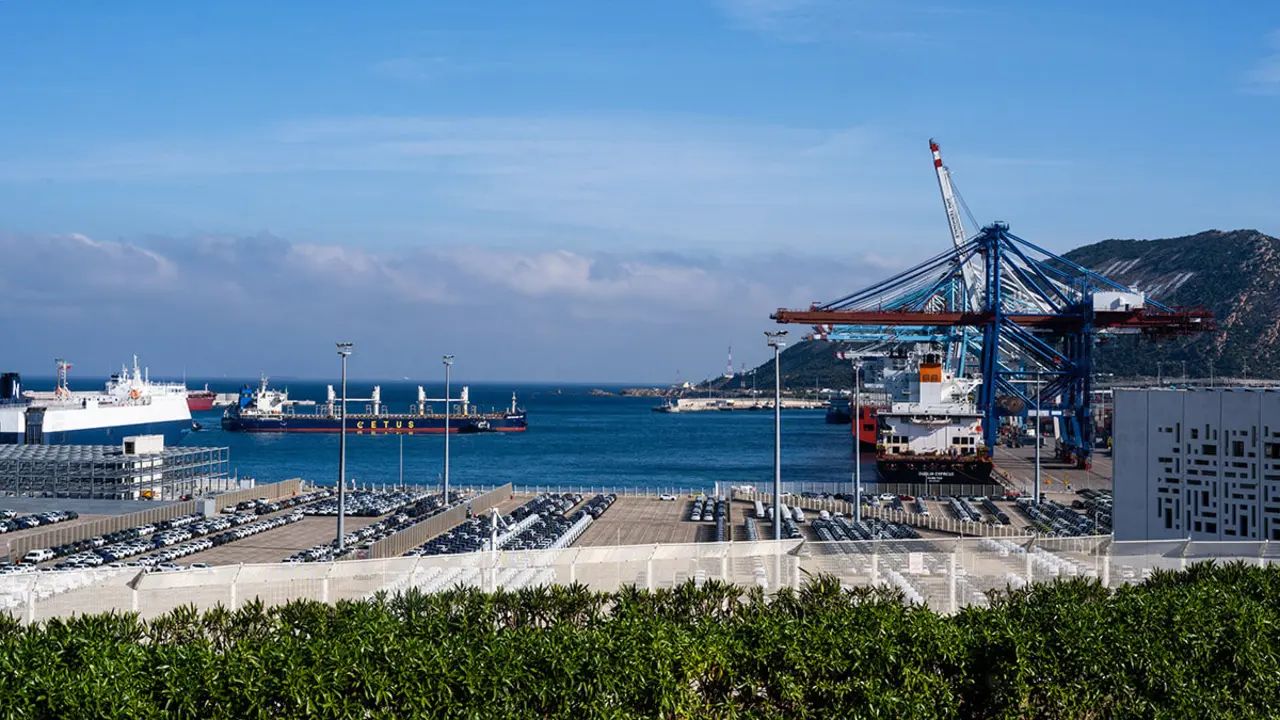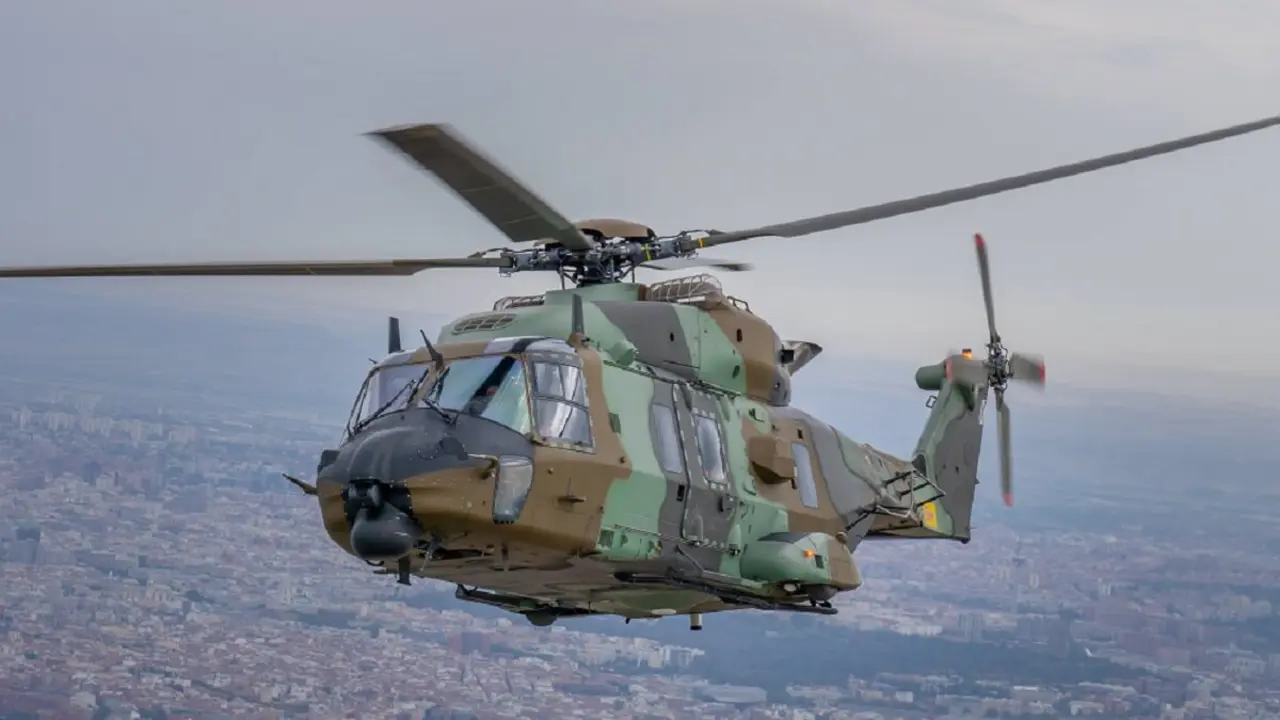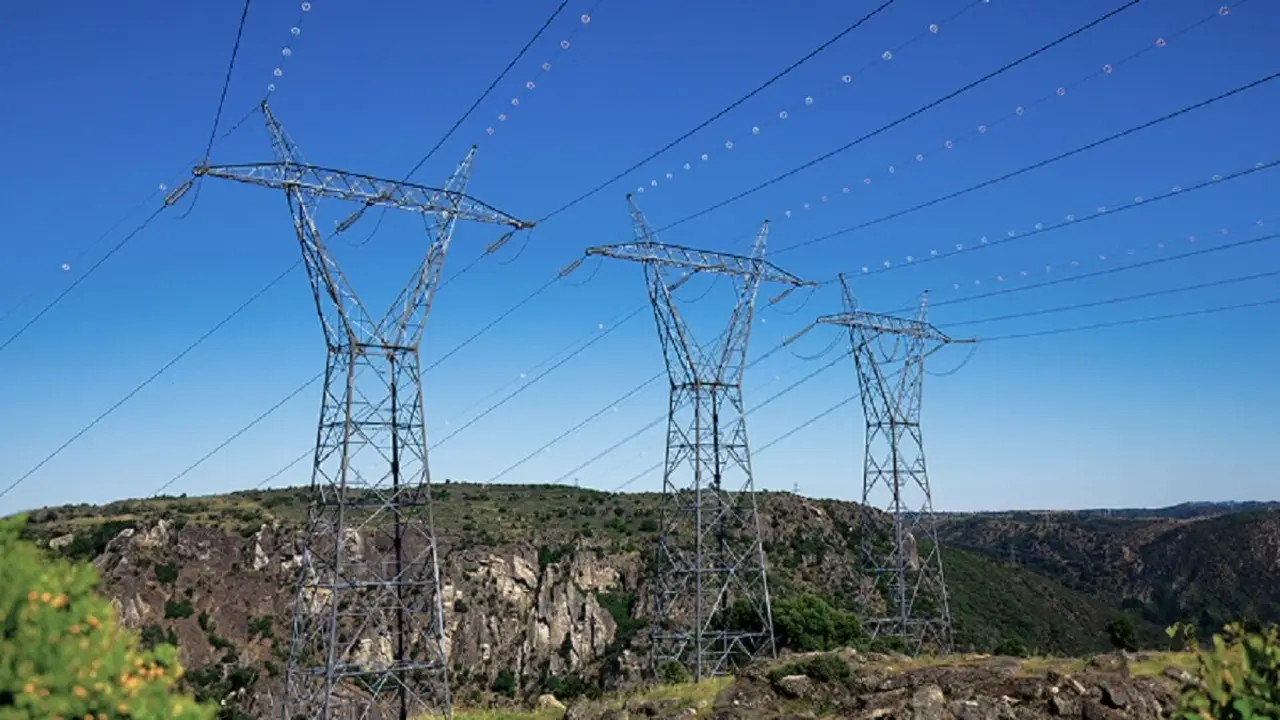Experts bet on transferring Spain's experience in the construction of railway infrastructures to Latin American countries
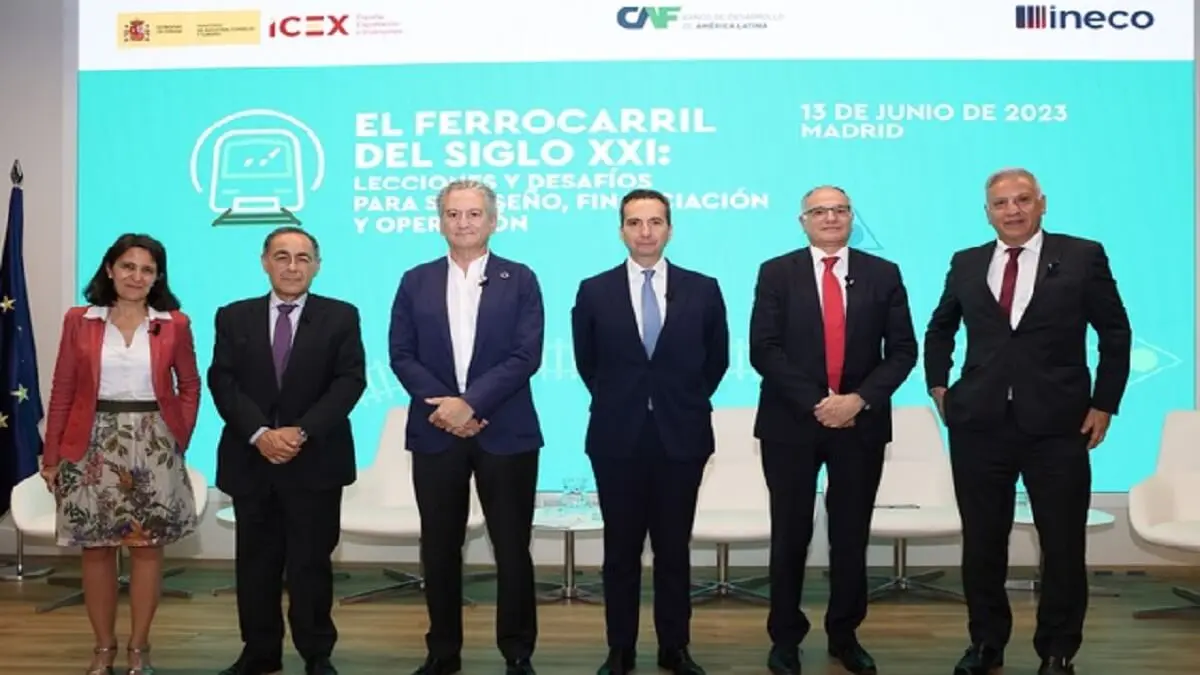
The Madrid headquarters of ICEX was the venue for the conference "The 21st century railway: lessons and challenges for its design, financing and operation", organised by CAF together with ICEX and INECO.
The event brought together experts, public representatives, private companies and financial institutions related to the railway sector in Latin America and Spain, within the framework of the CAF Latin America-Spain Conference "Railways and sustainable connectivity without losing the train".
The attendees were welcomed by José María Blasco, Director of Infrastructures, Health and ICT of ICEX, who predicted that this new CAF conference would be similar to the success of another of the bank's initiatives, "Water Dialogues". Blasco stressed that "the Spanish railway sector is a world leader, and our goal at ICEX is to make it more technological, more digital and greener. From ICEX we support companies that want to work in the projects underway in the Latin American region, where the railway can become the transport of the 21st century".
Ignacio Corlazzoli, CAF's manager for Europe, Asia and the Middle East, emphasised the importance of closing the infrastructure gap in Latin America and the Caribbean, for which it would be necessary to invest 5% of the GDP, compared to the current 3.5%. According to Corlazzoli, "the railway sector is fully in line with CAF's strategic priorities: we are the green bank of Latin America and the Caribbean, and we promote urban mobility; we encourage economic reactivation, for which it is necessary to reduce logistics costs; and both integration and intra-regional trade are in the bank's DNA".
This was followed by the first of the session's round tables, which was moderated by Mónica López, coordinator of CAF's Transport team. The panel included the participation of Jonathan Bernal, President of the National Infrastructure Agency of Colombia, who explained the infrastructure challenges for this country in terms of connecting the Pacific coast with the rest of the territory: "more than 3,500 kilometres of railway infrastructure were left unusable due to lack of maintenance and the law regulating the sector dates back to 1920, although work is already underway to approve a new law". As a result, freight transport costs have soared, to the point that it is cheaper to send a container from China to the Colombian coast than from there to the interior of the country.
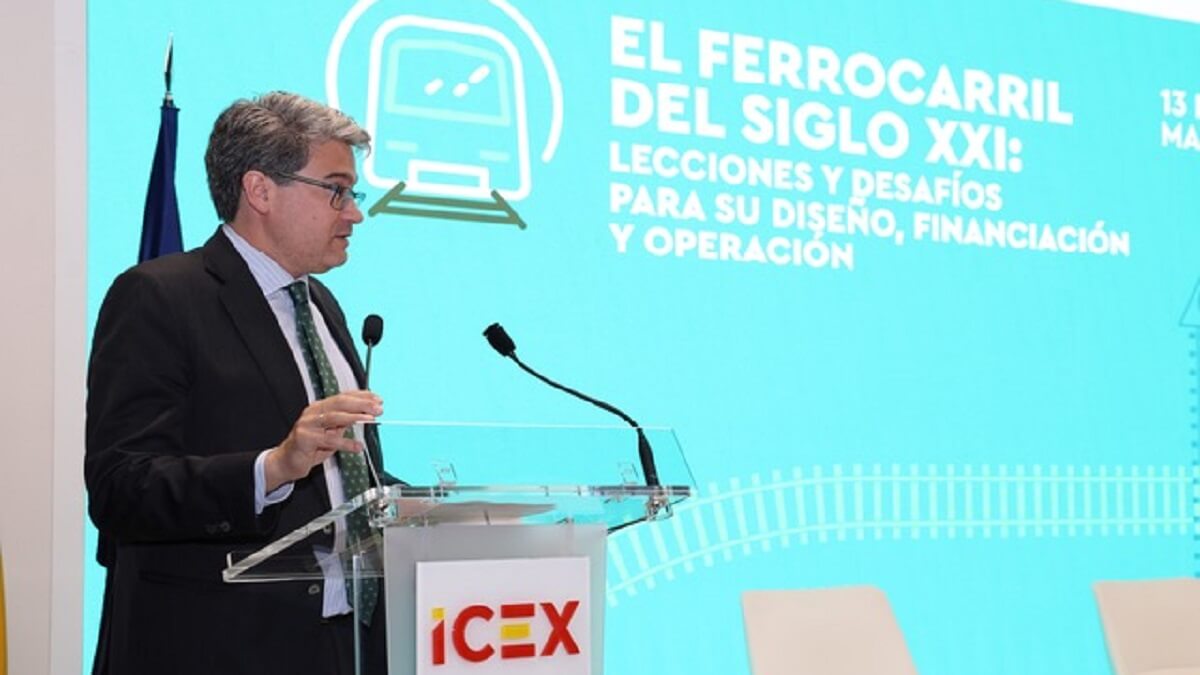
Bernal reviewed the projects and investments that have been mobilised to remedy these problems, with a railway line that will link the Pacific coast with the central corridor of Colombia.
From the ICO, Antonio Bandrés, Director of International Financing and European Union, emphasised the advantages that the development of railway infrastructures will bring to Latin American countries: "the technological transfer that comes with the railway, high speed, engineering, spare parts, as well as its contribution to energy sovereignty and sustainable transport in these countries is very important".
For his part, José Manuel Vassallo, Professor of Transport at the Polytechnic University of Madrid, pointed out that 'although the railway is a means of transport that contributes to sustainability and efficiency, in order to be really efficient it has to concentrate large volumes, both in passenger and freight transport'.
Benoit Félix, Global Director of Structured Finance at Santander Group, underlined that "the railway is very important for the financial sector, because it involves a huge industrial chain, with a large number of clients. That is why we have to be there wherever a railway is built".
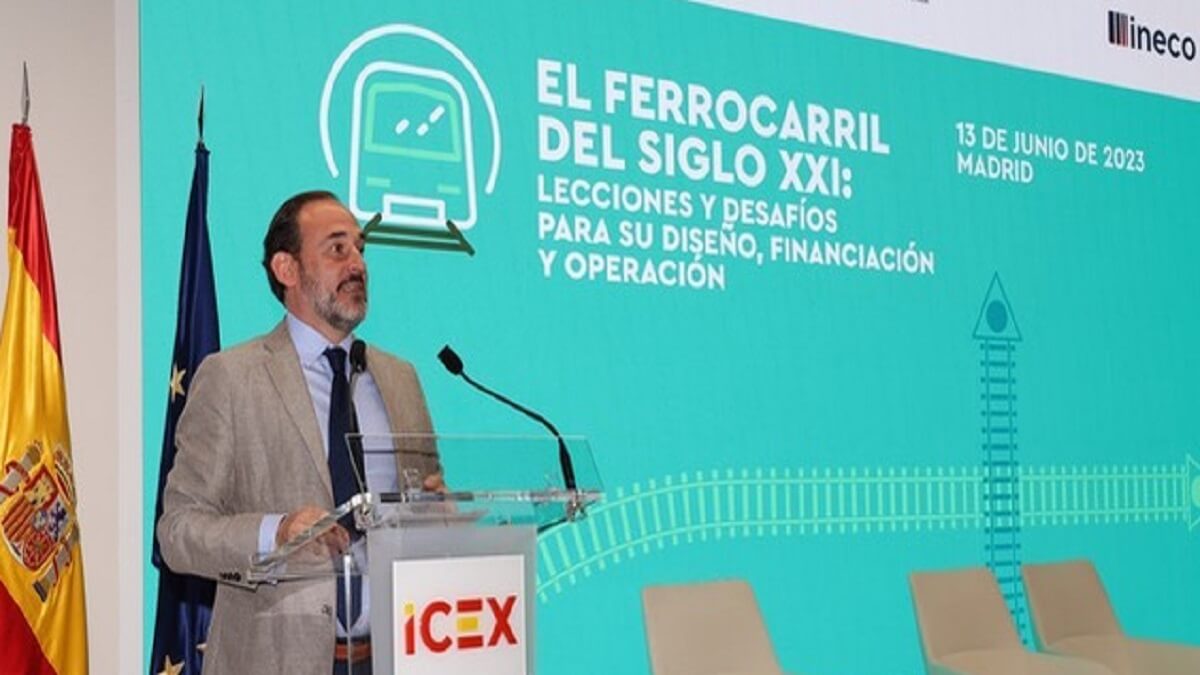
Closing the panel, Mónica López highlighted that "we have had the privilege of having, in this event organised by CAF, INECO and ICEX in Madrid, the attendance of countries such as Argentina, Brazil, Bolivia, Chile and Colombia. A platform where the crucial role that railways play in our transport system was highlighted. The discussion provided valuable perspectives on the need to boost and modernise this means of transport, reflecting its importance for the future of sustainable mobility. This event has reaffirmed our commitment to support progress in this vital sector for the region, contributing to sustained growth and efficiency in Latin America and the Caribbean".
The day continued with the presentation of the Santiago-Valparaíso fast train project by Juan Manuel Sánchez, general director of Concesiones de Chile, who explained the evolution of infrastructure in the country over the last three decades and updated the attendees on the tenders, routes and construction deadlines for the Santiago-Valparaíso line. A railway line that will link the country's two largest metropolitan areas, where 3/5 of the population is concentrated, and which will make use of pre-existing infrastructures.
For Sánchez, "the construction and improvement of the country's infrastructures is a way of reducing the inequality gap and improving the quality of life of citizens".
The last round table of the day was moderated by Ainhoa Zubieta, INECO's General Manager of International Business. Casimiro Iglesias, General Director of Railway Planning and Evaluation of Spain, took part in it. He reminded the renewal that Spain carried out in the railway field in the 80s of the last century, "thanks to a social and political consensus that has been maintained in time with the continuity of planning, regardless of the governments". As a result, the Spanish high-speed railway has become one of the most competitive in the world.
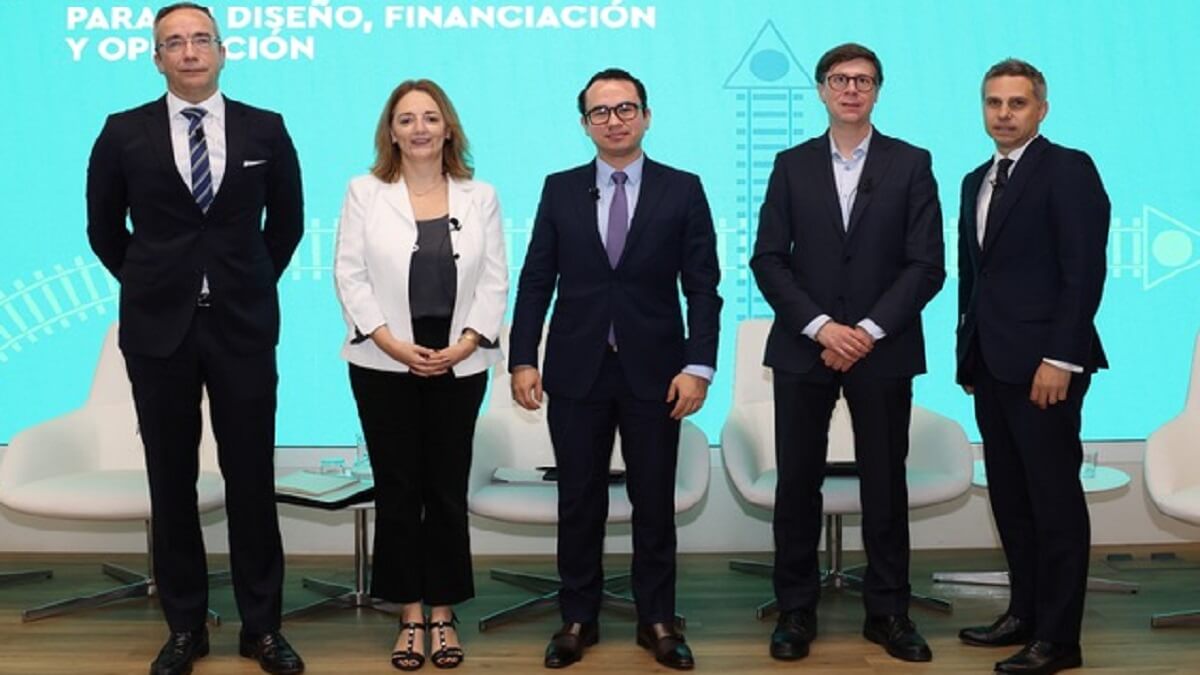
Fernando Nicolás, International Director of ADIF, pointed out that "this commitment to the railway 30 years ago allows us now to enjoy a network that is an example for the whole world, with emblematic projects and an average distance of 300-600 km, which is where the railway is the most competitive".
Diego Marín, Acciona's Executive Director of Concessions, spoke about the project to extend the Sao Paulo (Brazil) underground, which the company is currently carrying out, and pointed out that "in these cases, the strategic importance of the asset is key, such as the Sao Paulo underground project, which helps to mobilise a large city".
For his part, Álvaro Simões da Conceição Neto, director of Railway Concessions in Brazil, explained that "it is difficult to ensure stability in the financing of railway projects in the long term. In Brazil, we have different programmes that include tax reductions, incentivised bond issues, direct financing programmes by banks, government participation in companies or regional development funds".
Finally, Juan Matías Archilla, RENFE's International Business Manager, regretted that "in Latin America the passenger railway has been lost and it is slowly recovering. The key now is to imitate the model that triumphed in Spain, putting the customer at the centre and taking advantage of the experience of other projects".

The conference was closed by Sergio Vázquez, president of INECO, who explained the rebirth of the railway in the 21st century due to the possibilities it has to fight against the main threat to Humanity, which is the climate change. "Moreover, the railway is more than a means of transport: it is a community generator, an expression of civilisation and common good; in contrast to individualistic ways out, the railway builds society", he concluded.

